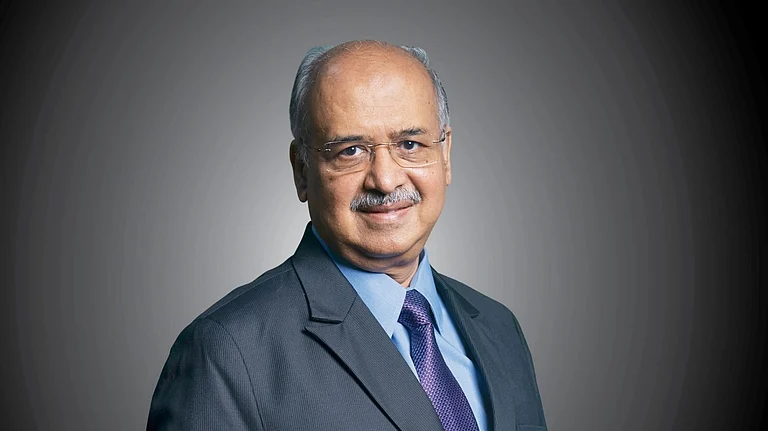India’s family business (FB) inheritors face a fork in the road regarding their succession. FBs will play a pivotal role in India with the country becoming a $30trn economy by 2047, contributing around 85% to India’s GDP by 2047, according to McKinsey, a consultancy.
Hence, the leadership (and owners) of such FBs are crucial to this metric. A vast majority of India’s largest FBs today are in various phases of generational change, with many leaders in their mid- to late-60s and their millennial successors closer to half that age.
FB inheritors choose from three broad playbooks. Some follow their father’s (sadly, only 13% of FB successors are women) business footsteps and take over the FB. Some are charting their own path, stepping away from the FB and building their own legacy outside. This may include financial legacies whilst running their family offices (FOs).
Others are taking a more nuanced path, often becoming “family entrepreneurs”, staying within the architecture of the larger FB, but choosing to venture into new lines of business or growth outside the erstwhile core business of the FB. It is this precarious balance of inheritors vs builders that we see playing out.
Builders and Investors
A controversial trend remains the lure of setting up and managing one’s FOs, funded by the family’s personal wealth. According to PwC, another consultancy, the number of FOs have risen almost 7X, from 45 in 2018 to 300-plus in 2024. The lure is clear—there is no stress of running a large legacy business, with towering founder shadows. There are no investors, regulators, trade unions, joint-venture partners etc to appease. You become your own boss.
Today’s inheritors are stepping into mature, well-governed successful businesses, without the same fire in the belly to build something from scratch. They have watched their parents grind to build the fabulous value they own today. They know the sacrifice, the stakes and the emotional investment it takes a business to be successful.
Not all step up to the challenge. But some do, and they need to follow through. Some lessons can only be learnt on the proverbial factory floor and any inheritor needs that grind to earn their stripes, even in becoming a successful FO investor.
The lure is clear—there is no stress of running a large legacy business with towering founder shadows. There are no investors, regulators etc to appease
How do you see the intrinsic value in a founder or an idea, if you have never built something of your own? We need both—builders and investors. How else do we expect to be a $30trn economy? By the perpetual cycle of the successful business owners professionalising their business at the right stage and investing in new ideas via their FO.
Redefining Identities
Take the example of Rishabh Mariwala, whose family founded and owns the fast-moving consumer goods giant Marico (today run by a non-family professional). He chose to start a beauty/skin-care brand called Soap Opera N More in 2011 (now sold to Marico) and now runs one of India’s most successful FOs (Shaarp Ventures).
Whilst the 300-odd FOs are the sexy distraction, the heart and soul of India’s economy remains its FBs. Here, we see the traditional approach towards generational succession evolving. As opposed to being a 1:1 replacement of an iconic founder, today’s next generation are creating their own path within the same FB.
Businesses have evolved so substantially in a generation that this is rarely even possible. What appears as generational shifts towards entrepreneurial ventures can actually be subtle attempts to redefine their identity, away from the imposing shadows of legendary parents.
For example, the Ambani twins, Akash and Isha, with formal roles in Jio and Reliance Retail, are driving the new age businesses of the Reliance Industries (RIL). While the traditional petrochemical business of RIL remains its core cash engine, Reliance Retail’s 2023–24 profit crossed ₹12,12,000 crore; whilst Jio’s crossed ₹7,000 crore.
In JSW Group, Parth Jindal reinvests cash from his steel business into JSW Paints plus backs around 14 start-ups via JSW Ventures.
Karan Adani, chief executive of Adani Ports, is shaping the first-generation Adani group into becoming India's largest port developer and operator. Jeet Adani is focused on airports, green energy and digital transformation. These moves are revolutionising India’s infrastructure. The siblings are expanding the FB and carving their niche, within the broader framework of the Adani group.
In all examples above, these changes are being done whilst their iconic fathers, Mukesh Ambani, Sajjal Jindal and Gautam Adani respectively, are still in the driver’s seat.
Scale or Stall?
The role of private equity (PE) and the implementation of modern governance structures have facilitated families to unlock capital and pursue newer investments and/or bring in professionals. Families now provide strategic inputs while professionals manage operations. PE can also be a profitable way for uninterested heirs to unlock value and go their own financial way.
At the date of writing, Dilip Piramal (VIP Group) did just that. He said, publicly, that his children had no interest in joining the FB and selling luggage; and hence he turned towards a mix of PE and FO capital to exit the company. Cipla and Haldiram's did something similar.
The next generation isn’t shying away from their legacies; they are reimagining it. Operate, incubate or allocate, inheritors need to choose fast and do it right. In a $30trn future, heir quality will decide whether India scales or stalls.
(The writer is partner, Cyril Amarchand Mangaldas)











